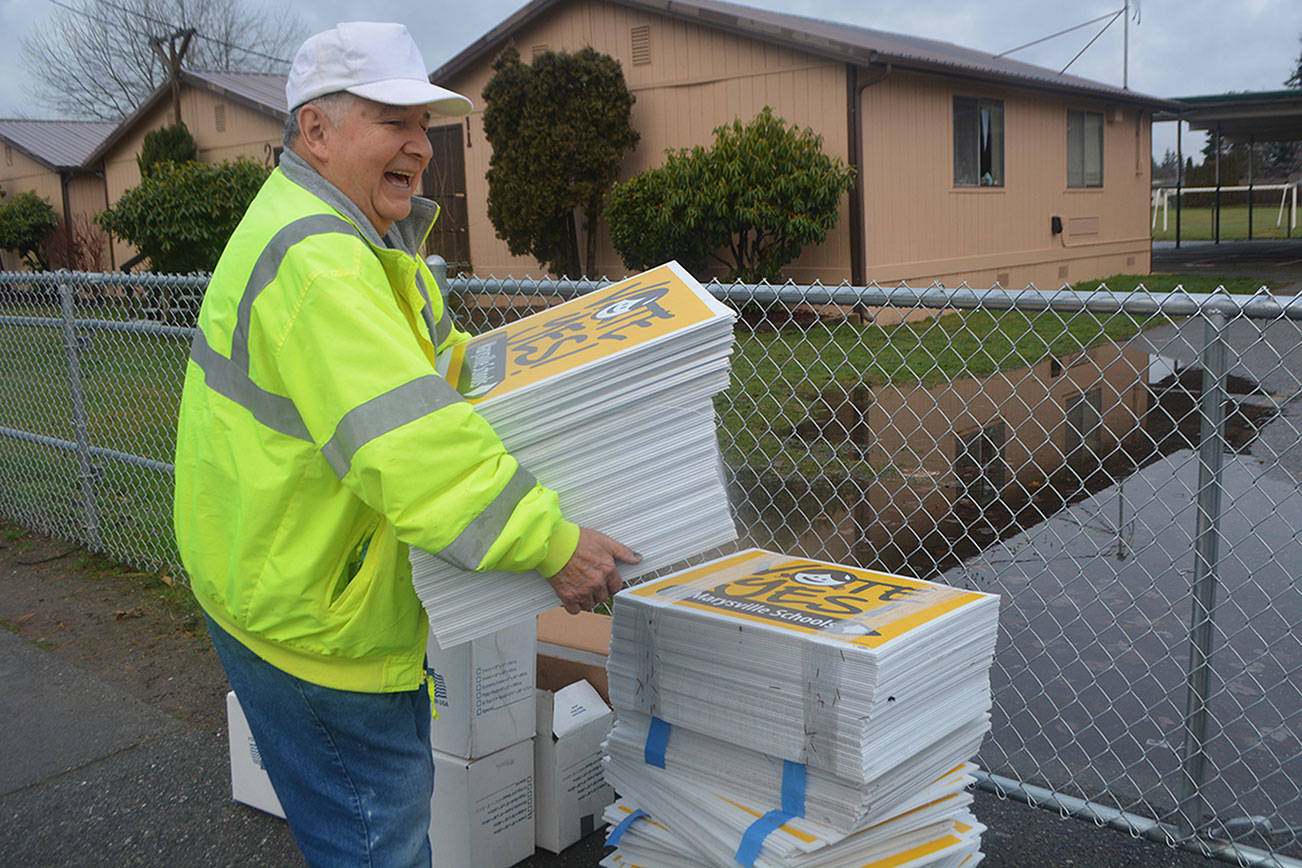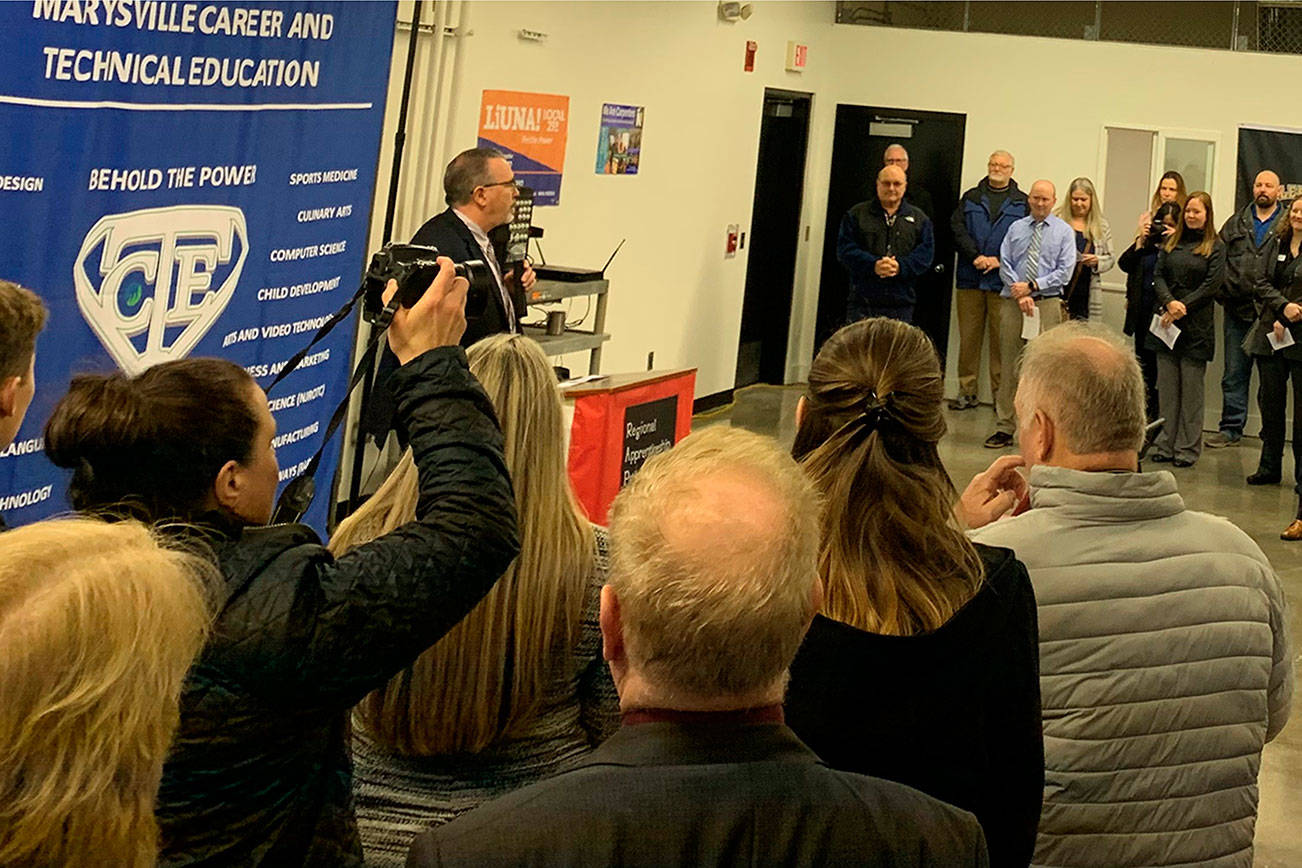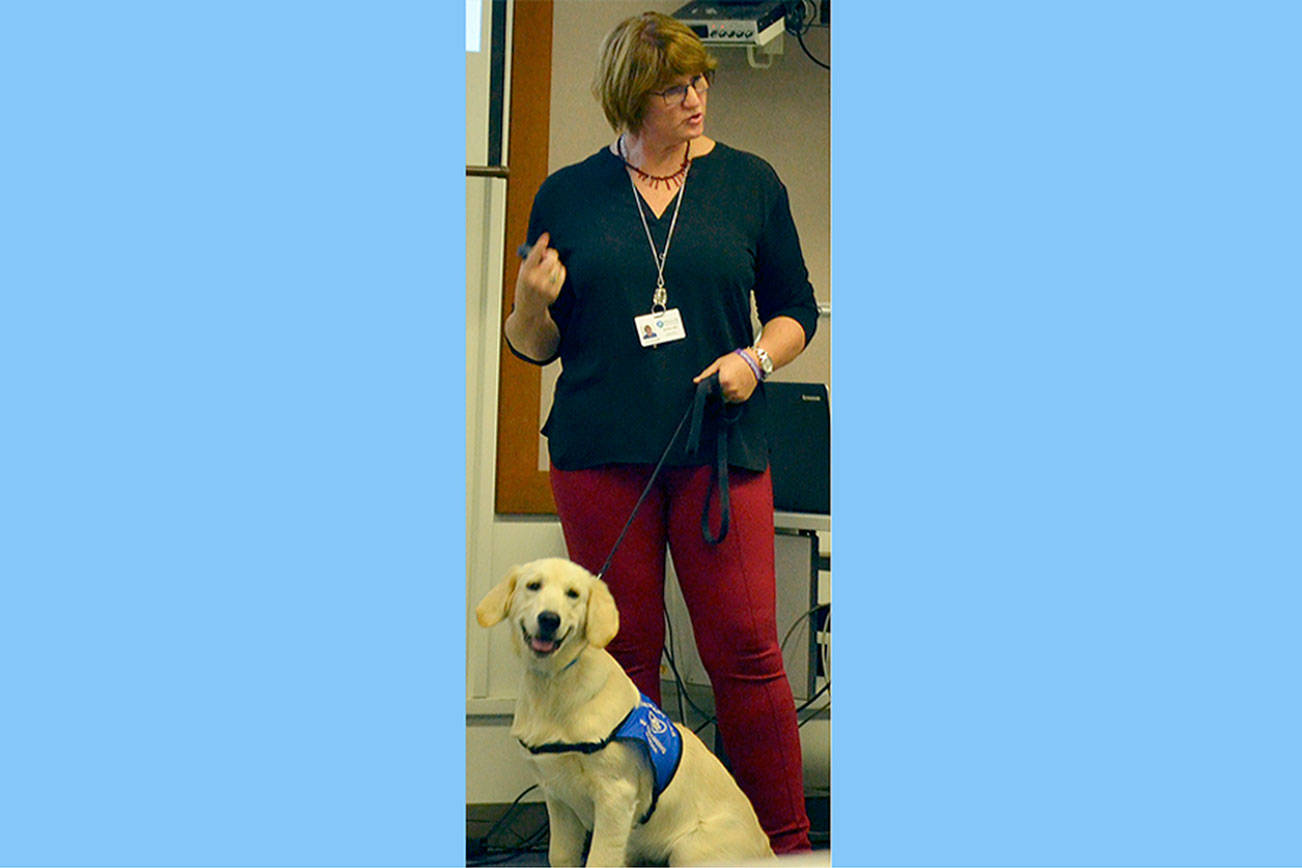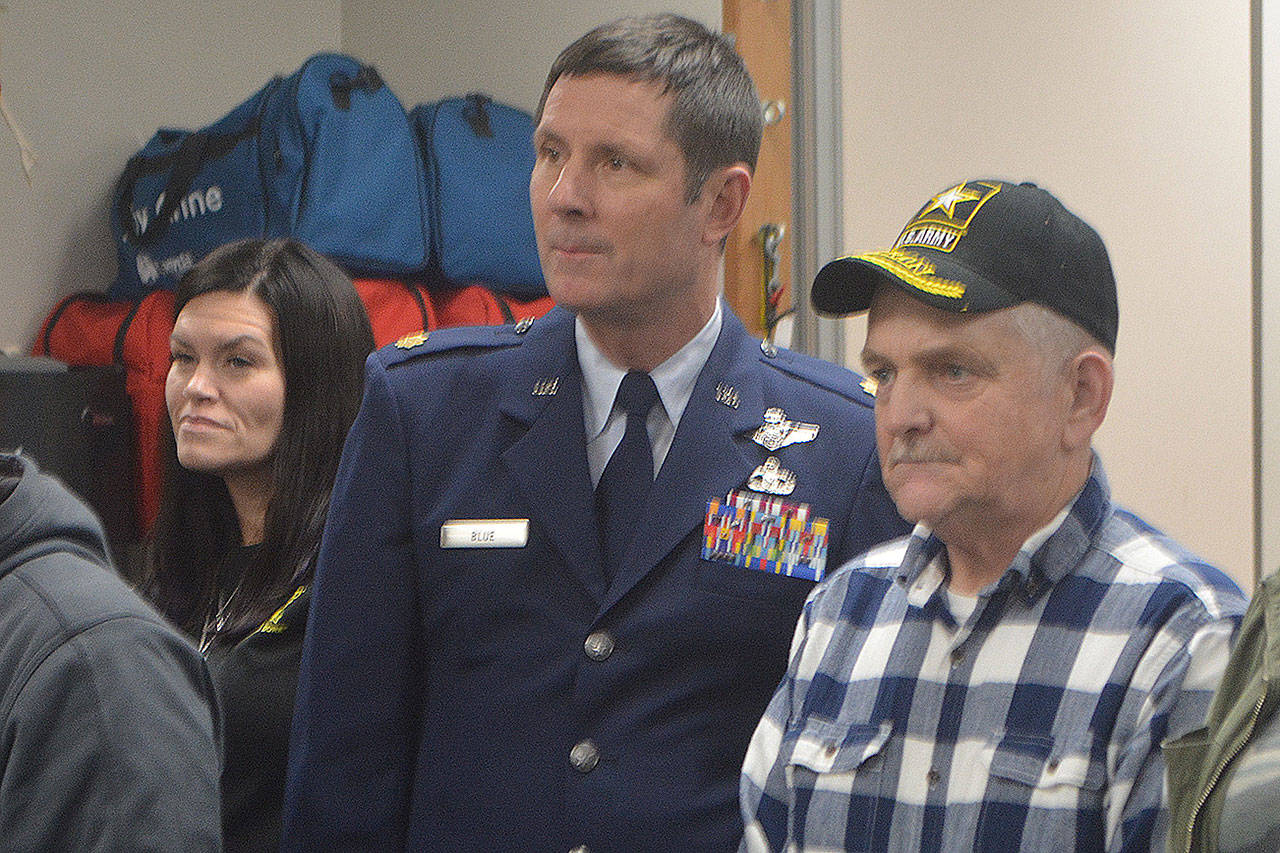MARYSVILLE – Answering public information requests is time-consuming and costly for the city of Marysville. Last year, staff spent about 402 hours searching for and answering 160 information requests.
The reasons for the requests vary.
The most-time-consuming request took 5,650 minutes or 94.1 hours. It was from Bryant Moy, who works in political science at Washington University in St. Louis. His request was for Mayor Jon Nehring’s emails from Jan. 1 to March 31, 2018. The request was for a research study being done by professor Betsy Sinclair regarding patterns local governments use with email to communicate both internally and externally.
Moy said 1,400 cities were included in their sampling, and only about half responded, raising concerns about their legality regarding public records requests.
Of those who did respond, some cities, such as Seattle, are still sending information. He said their researchers are willing to work with cities because they don’t want to be a burden on city staffs. Moy said states on the West Coast have some of the best open records laws in the nation, making it easier to hold local governments accountable there.
“Washington has very strong open records laws,” he said.
Different parts of the country also communicate differently, he said, adding that in Texas everything is done over the phone.
Of the emails they have started sifting through, Moy said he hasn’t seen as many personal ones as he thought he might.
While they are studying the issues mayors are talking about, they also are doing a “sentiment analysis” on how formal the emails are depending on who they are conversing with.
“Both are important – the people and the issues they are dealing with,” he said.
Tina Brock, a deputy city clerk with experience is law, said she spends about 30 percent of her time working on public information requests. She is helped by liaisons in every city department, depending on which one the request is about.
She takes the lead on every response, checking to see if any information needs to be redacted, or crossed out for any legal reasons.
On the job for five years, she said the number seems to increase each year, with there being 147 last year.
“It ebbs and flows,” she said. “Some times there are a lot and other times there are not.”
Brock wouldn’t say what she thinks the information is used for, but many of the requests come from lawyers on behalf of clients. Basically the city is in many cases is providing information that could be used in a lawsuit or claim against it.
For example in the top 10 most time-consuming requests there are requests regarding police training around signature gathering, two code enforcement complaints, a condemnation proceeding, an injury on 3rd Street and parking for the disabled.
On the other end of the spectrum two complaints took very little time: three minutes on a claim settlement about a police dog bite and five minutes for Nehring’s tax returns for the past three years.
Others took longer than you might expect: 150 minutes for the cost of hanging plant baskets downtown and maintaining them and 120 minutes finding out if lighting is too bright at 2914 73rd Ave. NE.
Some other requests just seem unusual: 300 minutes for electronic copies of cctv cameras or other monitoring devices at State Avenue and 116th Street NE; 240 minutes for documentation requiring a polygraph exam in 2016-17; 90 minutes to find how many checks over $599 in the last six months remain uncashed; 30 minutes for an ordinance prohibiting people from sitting or lying on sidewalk; and 20 minutes related to an indecent exposure case.
Most time-consuming requests
•5,650 minutes: Mayor’s emails from Jan. 1, 2018 to March 31, 2018. Request made by Washington University in St. Louis, Mo. for a research study to understand patterns in the ways local governments use email to communicate internally and with those outside of government.
•2,280 minutes: 1217 First St., all records and documents related to zoning, use, permitting, development or classification. Request made by Lacey Georgeson of Seattle. She’s a legal assistant at Schlemlein Fick & Scruggs, PLLC. She asked for all records regarding any government official or agency related to that property.
•1,500 minutes: Documents pertaining to when police are called to, or make contact with, initiative petition circulators. Request made by Roy Ruffino of Lacey’s Citizen Solutions, a for-profit signature-gathering firm. He asked for documents on police training and policies regarding dealing with signature gatherers on private or public property.
•1,245 minutes: Any records regarding three people living in the 2910 73rd Ave. NE from July 2016 to present. This request was made by attorney Nicholas Fisher of Everett. He asked for any records for public works, code enforcement or police regarding Evan, Patricia or Jennifer Kaiser. He asked for similar disputes, complaints for claims from 2016 to present about neighbors Peter or Diane Buck and James or Jaye (Christine) Henkelman.
•1,080 minutes: Appraisals, reports, diagrams, correspondence, notes, written requests or anything else pertaining to 1830 1st. St. Request made attorney Daniel Frohlich on behalf of David Brundage of Marysville, who feared he was being low-balled by the city during condemnation proceedings.
•960 minutes: Information related code enforcement complaints against two people at 7029 59th Drive NE in Marysville from Jan. 1, 2017 to June 11, 2018. Request made by Celestin G.C. Schmidt of that address. She also asked for any photographs, and the logs of three city officers. She also asked for text messages of those officers.
•960 minutes: SRV contract for 3rd Street Project, final inspection reports, any and all other accidents, falls and injuries suffered by anyone at this location. Request made by Everett attorney Royce Ferguson on behalf of Heather Hahn, who was reportedly injured at that site. •750 minutes: City public parking ADA information. Request made by attorney Conrad Reynoldson of Seattle, a civil and disability advocate. He asked for details regarding city parking.
•420 minutes: Information regarding two people at 7029 59th Drive NE. Jan. 1, 2017-June 11, 2018. Request made by Celestin G.C. Schmidt of that address. She asked for all written, email or texting correspondence between city employees.
•360 minutes: Information regarding various claims for damages and their settlements regarding police. The Daily Herald in Everett made this request for a news story.
There are two other cases that took 300 minutes or more, five more that took 200 minutes or more and 14 others that took 100 minutes or more.







